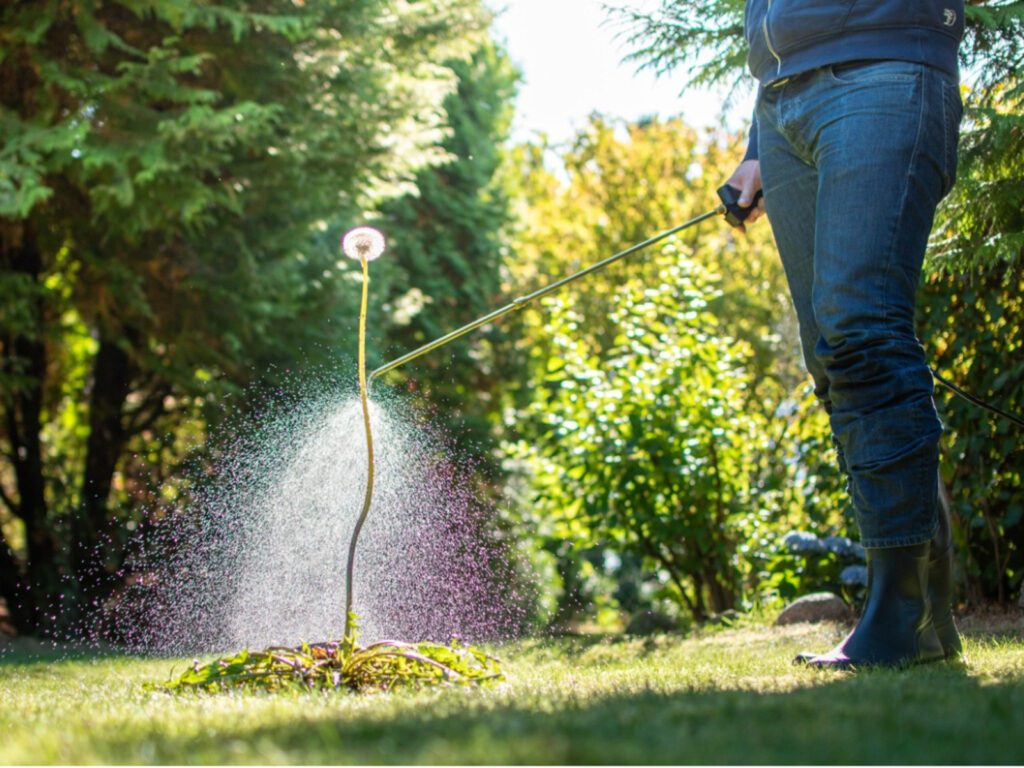Introduction: Weeds can be the bane of every gardener’s existence. Invasion by these pesky invaders quickly disrupts carefully cultivated spaces, competing with beloved plants for nutrients and water resources and quickly taking over if left unchecked. But with knowledge and strategies in hand, Weed Control Edmonton can be achieved more successfully – in this comprehensive guide, we’ll cover various methods and techniques for keeping weeds at bay while creating a vibrant garden space.
Weeds: All you need to know
Before we discuss Weed control edmonton methods, it’s essential that we first gain a better understanding of what weeds are and why they pose a threat to our gardens. Simply put, weeds are plants that encroach where they’re not wanted by outcompeting desired ones for resources like sunlight, water and nutrients – thus outsmarting their desired counterparts in terms of resources such as sunlight, water and nutrients. They can be annuals, biennials or perennials that spread via seeds, rhizomes or stolons – potentially overwhelming desirable plants out and outcompeting desired plants in terms of resources available such as sunlight, water and nutrients to our gardens.
Weed Control Methods:
Cultural Control:
Mulching: Mulch can help weed control growth by blocking sunlight and preventing new seeds from germinating. Adding organic materials like bark chips, straw or compost as mulch not only prevents further weed development but also enhances soil health.
Proper Plant Spacing:
Crammed plants create ideal conditions for weed growth by restricting airflow and sunlight. By spacing plants appropriately, you can reduce weed establishment while making it easier to manually remove them.
Crop Rotation:
Rotating crops season by season can help break up weed cycles that thrive around certain plants, while also preventing build-ups of soil-borne diseases and pests.
Hand Weeding:
For effective and environmentally-friendly Weed control edmonton, inspecting your garden regularly and manually pulling weeds is one of the best and most efficient strategies available to you. When pulling them out by their roots to prevent future regrowth.
Mechanical Control:
Whacking (Hoeing):
Hoeing is an effective method of controlling small weed seedlings just beneath the soil surface, and especially useful in large spaces like vegetable gardens and lawns. This method requires less work for larger spaces.
Weed Trimming:
String trimmers or weed whackers can be used to quickly trim weeds growing in hard-to-reach places such as fence lines. Mowing: Regular lawn mowing helps prevent the establishment of broadleaf weeds while simultaneously encouraging desirable grass species growth.
Chemical Control:
Herbicides:
Selective herbicides target specific weed types while leaving desired plants undisturbed, while non-selective ones, like glyphosate, kill an array of vegetation types simultaneously and are therefore best used where total vegetation control is required, like driveways or sidewalks. Always read label instructions carefully and use herbicides responsibly in order to minimize environmental impact.

Pre-Emergent Herbicides:
Pre-emergent herbicides are applied before weed seeds germinate to create a protective barrier in the soil and stop future seedlings from emerging.
Post-emergent Herbicides:
Used to address actively growing weeds, post-emergent herbicides can either selective or nonselective target established weeds for control.
Biological Control:
Weed-Eating Animals:
By introducing animals like goats, sheep or chickens into weed-infested areas you can naturally reduce weed populations through biological means. They graze on weeds which reduce their abundance while simultaneously stopping seed production.
Biological Control Agents:
Certain insects, fungi and bacteria can serve as biocontrol agents to target specific weed species without harming other plants or animals in their surroundings. Such agents are typically introduce into an environment to suppress weed growth without negatively impacting other areas or creatures.
Integrative Weed Management (IWM):
Integrative Weed Management is an approach that integrates multiple Weed control edmonton strategies for long-term, sustainable weed management with minimal environmental impact. Gardeners can utilize cultural, mechanical, chemical and biological control methods to effectively combat weeds while creating healthy gardens that support fruitful harvests.
Conclusion:
Weeds may seem insurmountable at first, but with the appropriate strategies and techniques you can manage weeds successfully for a flourishing garden. Organic methods or chemical solutions – whether organic or otherwise – both play an essential part in effective weed lawn care management; by understanding their lifecycles and taking proactive control measures you can create an environment in which plants can flourish free from competition from unwanted invaders.
Ready to reclaim your yard from the clutches of weeds and transform it into a lush oasis? Let My Yard Ninja be your guide to effective Weed control services near me and garden mastery. Say goodbye to weed woes and hello to a thriving outdoor space! Contact us today to schedule your consultation and take the first step towards a beautiful, weed-free yard.”



